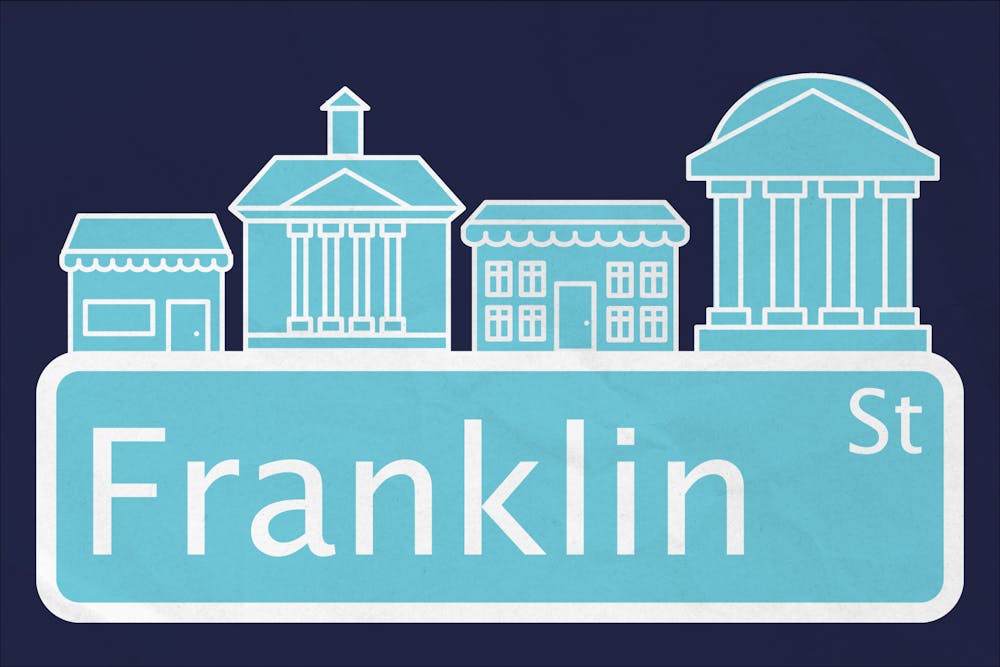It’s a sweltering summer afternoon in Chapel Hill, the kind that makes the pavement glisten in the sun, and you are about to start a journey that many UNC students have embarked on before you: a walk down Franklin Street.
Stepping onto Franklin Street at the Morehead Planetarium, you’re immediately immersed in the heart of the vibrant Chapel Hill community. The town’s main artery beats to the rhythm of street performers and foot traffic. Colorful murals line the walls of many local establishments, but one color stands out the most. Since it borders UNC’s campus and provides the setting for many Tar Heel traditions, Franklin Street bleeds Carolina Blue.
Time-Out is across the street from the planetarium. The restaurant, which has been dishing up critically-acclaimed Southern cooking since 1978, is open 24/7, 365 days per year. Time-Out is an enduring late-night tradition among students and pays tribute to UNC sports, as its walls are filled with pictures of famous UNC athletes and painted a very familiar shade of blue.
You walk a few more feet down Franklin Street and encounter another Chapel Hill tradition. The Peace and Justice Plaza, which stands outside the post office and court building, commemorates the town’s history of social justice advocacy, such as the Chapel Hill Nine, a group of high school students who sat in at a Franklin Street drug store to protest racial segregation in 1960.
In addition to the Chapel Hill Nine, thousands of community activists have used Franklin Street as a venue to discuss topics such as the Vietnam War, environmental justice, women’s rights and, more recently, the Israel-Hamas war in Gaza.
On this same block, you pass by even more well-known Franklin Street establishments, including Sutton’s Drug Store, Julian’s, the Varsity Theater and Carolina Coffee Shop. These businesses remain very similar to how Missy Julian-Fox and Susan Worley, both long-time Chapel Hill residents and board members of the Chapel Hill Historical Society, remember them from childhood.
“It was like the way I think Sesame Street was,” Susan Worley said.
Julian-Fox grew up around her family’s business, Julian’s, the 81-year-old clothing store credited with creating and donating the argyle pattern to UNC Athletics.
“Franklin Street is a shared experience,” she said, “It connects all of us.”



